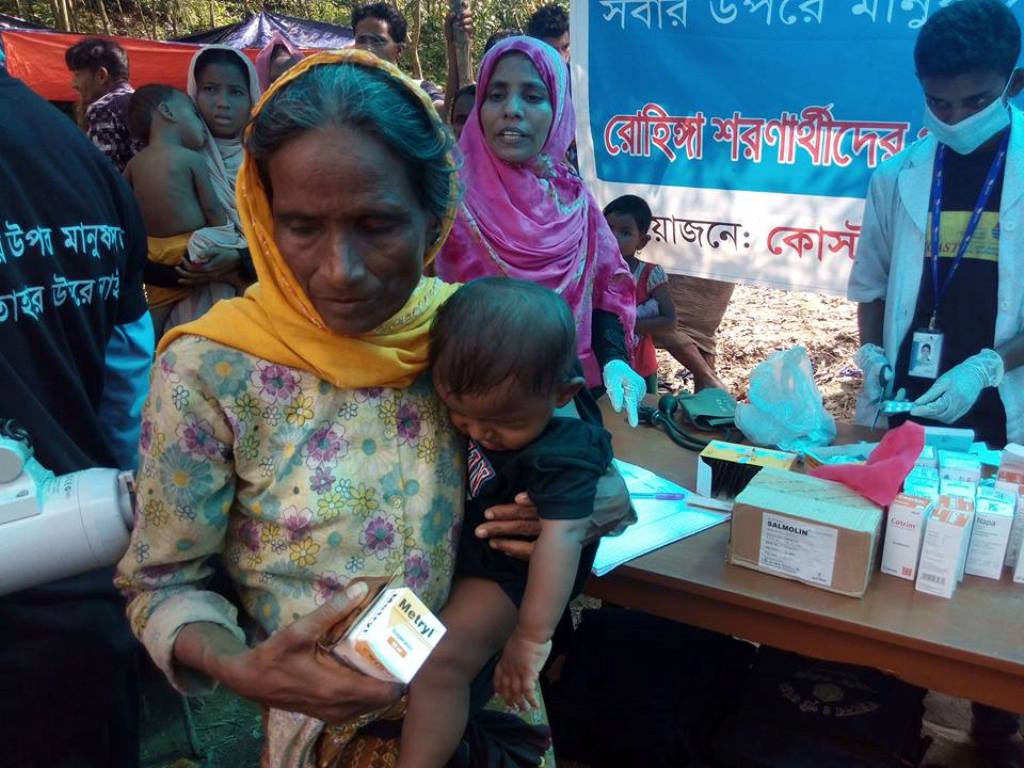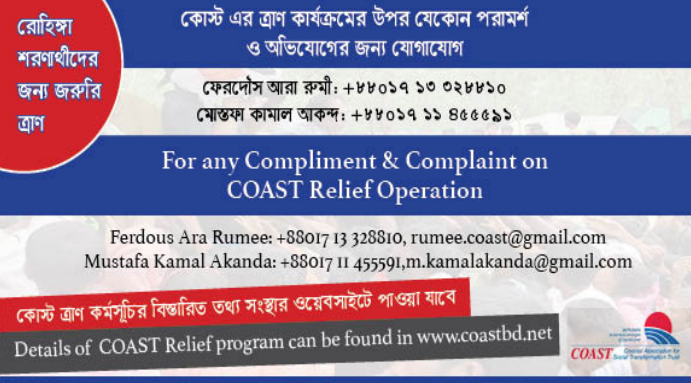COAST Trust Joins Response to Rohingya Crisis
As the Rohingya crisis unfolds and threatens to become the next major humanitarian disaster, our sector is once again put to the test to provide timely, relevant and high quality response. Aid agencies are in a difficult position because they have limited access to Rakhine State, the main affected area, to relieve the suffering of the Rohingya people, and can mostly help from abroad. In this challenging situation, how can humanitarian organisations respond effectively?
The crisis has led to a mass exodus of refugees seeking shelter in neighbouring countries. As of the end of September, the number is estimated to have reached beyond 500,000. One of our members, COAST Trust, got directly involved in Bangladesh as a first responder working in the Cox’s Bazar district, close to the Bangladesh-Myanmar border. COAST Trust’s regular updates (1, 2, 3, 4) on their response and the ongoing crisis, which can be accessed on their website, is an important source of information for the sector.
In line with the first commitment of the Core Humanitarian Standard on Quality and Accountability (CHS) according to which humanitarian response should be appropriate and relevant, COAST Trust conducted a rapid assessment of the refugee situation and drafted a need-based action plan. They identified immediate and long-term needs and mapped the activities of other humanitarian organisations on the ground to maximise the impact. The immediate needs included providing food, water, shelter, medical services and addressing sanitation, while the assessment also showed that the protection of women and adolescent girls should be a priority, as well as dealing with the mental health issue of some refugees. In addition, offering basic education and training services was identified as a necessity to maintain social harmony. Accordingly, COAST provides cooked food, safe drinking water and medical services, has recruited refugees to collect waste and taken some measures to counter child abuse.

“Humanitarian actors in Bangladesh have little experience working with such protected people like the Rohingya,” says Reza Chowdhury, Executive Director of COAST Trust. “But good practices like carrying out need assessments, paying attention to complementarity and coordination among agencies and the government are a priority for us.”
COAST Trust has also observed that although the local community is accommodating, the rapid growth of the population can be a source of tension as the influx has already caused a negative impact on the environment and creates problems for the local labour market. Overall, a more coordinated approach is needed to manage the unfolding refugee crisis. To this end, the Deputy Commissioner of Cox’s Bazar organised a coordination meeting which eventually paved the way to some important decisions but more measures have to be taken to assess the actual needs of the refugees and provied appropriate assistance.
According to the CHS, humanitarian response should be based on communication, participation and feedback to be effective. COAST Trust, as a member of the CHS Alliance, always seeks to ensure accountability and transparency in its activities. Demonstrating its commitment to the Core Humanitarian Standard, COAST Trust is currently in the process of CHS certification with the Humanitarian Quality Assurance Initiative (HQAI). Concerning the activities related to the Rohingya crisis, COAST Trust made all information public through their website. To comply with the fifth commitment of the CHS, a complaint handling mechanism was set up.

